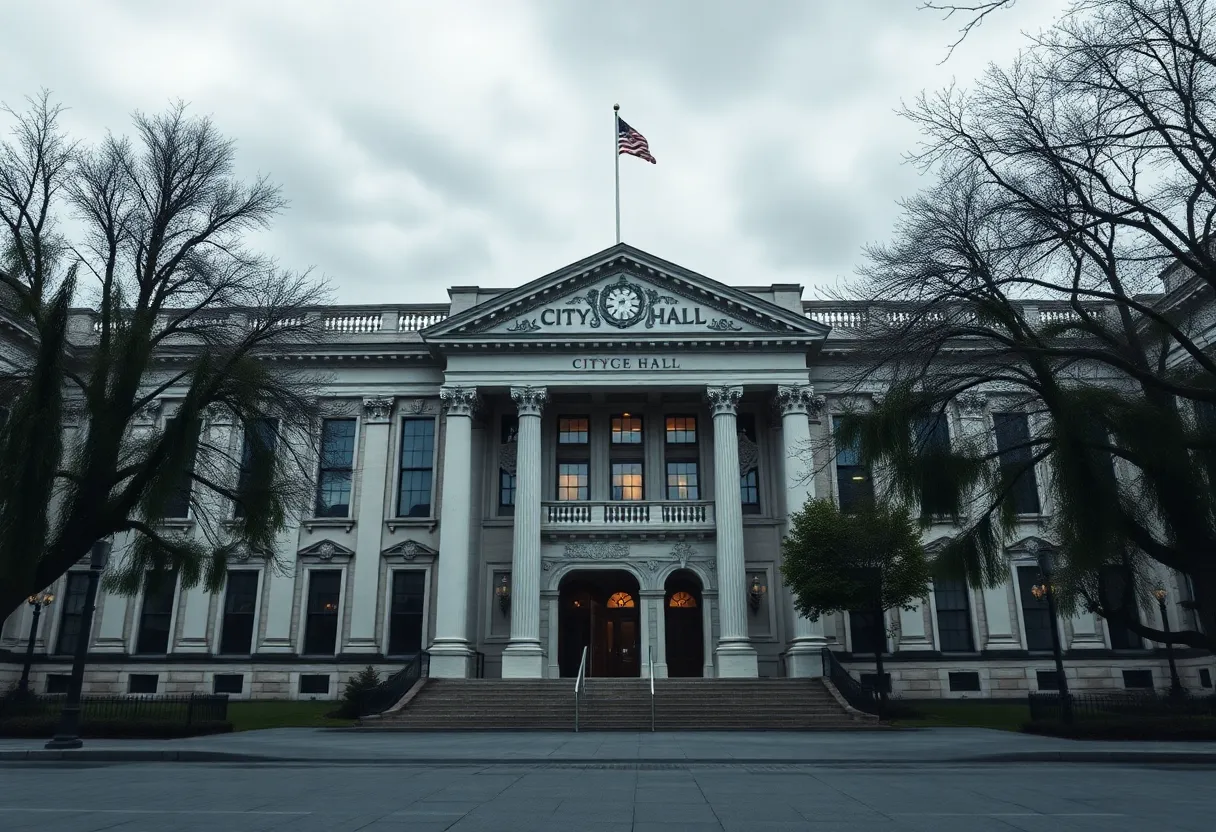News Summary
The California film and television industry is confronting significant challenges linked to tax incentives, as highlighted by key executives at the Milken Institute Global Conference. With more favorable incentives in other states, local executives express concern over potential production leakage. Initiatives are in place to boost state tax incentives, but fluctuations and environmental disruptions continue to complicate the landscape. Mayor Bass and Governor Newsom are pushing for reforms to sustain California’s position as a film production hub.
California has become a focal point for discussions surrounding the challenges faced by the film and television industry, particularly in response to the state’s tax-incentive issues. At the recent Milken Institute Global Conference, leading executives from the film and TV sector convened to highlight the implications of President Trump’s foreign-film tariff plan, echoing concerns that these production challenges are more pressing for California than for the rest of the United States.
Ravi Ahuja, CEO of Sony Pictures Entertainment, revealed that many companies are currently collaborating with the California state government to address legislative bills aimed at resolving ongoing tax-incentive problems. Ahuja noted that while California boasts robust advantages in terms of its talent pool and industry infrastructure, the competitive nature of tax incentives across other states is a growing concern. He pointed out that more favorable incentives elsewhere are prompting producers to seek more efficient production locations.
Alongside Ahuja, Casey Bloys, chairman and CEO of HBO and Max content, underscored the instability caused by capped state tax incentives. This capped system has been criticized for its unpredictable nature, which complicates long-term planning for production companies. The current lottery system for tax breaks in California further exacerbates these challenges, leaving producers uncertain about the financial viability of their projects.
Mike Hopkins, head of Prime Video and Amazon MGM Studios, shared similar concerns regarding California’s tax incentives, expressing a hope for a significant increase in these incentives during the upcoming summer. Hollywood executives have urged state lawmakers to implement guaranteed incentives to retain film and television productions within California.
Despite acknowledging the unparalleled talent and facilities available in California, creators like Deborah Cahn, known for her work on “The Diplomat,” indicated that storytelling requirements are often leading them to film in international locations. This points to a broader trend where the lack of competitive tax incentives has contributed to a substantial loss of production jobs in California.
Maintaining Los Angeles’s status as the epicenter of film and television production is crucial for California’s economic health, as the industry generates considerable economic activity statewide. In response to the production challenges, Los Angeles Mayor Karen Bass has established an Entertainment Industry Cabinet tasked with addressing production leakage and supporting Hollywood’s infrastructure. Mayor Bass emphasized the entertainment industry’s impact on various ancillary businesses and has pledged to streamline California’s production processes.
Governor Gavin Newsom has proposed a plan to elevate tax incentives for the film and television industry to an annual cap of $750 million, aimed at revitalizing the sector. Recent initiatives from the California Film Commission have also resulted in a record number of tax credits being awarded, with a noted emphasis on supporting independent films amidst the migration of larger productions to states with more attractive incentives.
Furthermore, the California Film Commission acknowledges that external factors, such as wildfires, have significantly disrupted production schedules, affecting job availability and overall industry stability. The ongoing challenges surrounding tax incentives, compounded by environmental factors, continue to shape the discourse within California’s film and television executives who are determined to preserve the state’s vital role in the entertainment landscape.
Deeper Dive: News & Info About This Topic
- LAist: California Faces Stiff Competition from Other States
- Mercury News: California Tax Credits Needed to Keep Hollywood Dream Alive
- Hollywood Reporter: California Film & TV Tax Credit Program
- CNET: California Solar Panel Incentives, Tax Credits
- Variety: California Production Tax Incentive Workers Rally
- Wikipedia: Film in California
- Google Search: California Film Tax Incentives
- Google Scholar: California Film Industry Tax Incentives
- Encyclopedia Britannica: Film Industry
- Google News: California Film Production Tax Incentives

Author: Anaheim Staff Writer
The Anaheim Staff Writer represents the experienced team at HEREAnaheim.com, your go-to source for actionable local news and information in Anaheim, Orange County, and beyond. Specializing in "news you can use," we cover essential topics like product reviews for personal and business needs, local business directories, politics, real estate trends, neighborhood insights, and state news affecting the area—with deep expertise drawn from years of dedicated reporting and strong community input, including local press releases and business updates. We deliver top reporting on high-value events such as major conventions at the Anaheim Convention Center, including NAMM and VidCon, exciting games at Angel Stadium and Honda Center, and developments at Disneyland Resort Our coverage extends to key organizations like the Anaheim Chamber of Commerce and Visit Anaheim, plus leading businesses in hospitality, entertainment, and innovation that power the local economy As part of the broader HERE network, including HERECostaMesa.com, HEREHuntingtonBeach.com, HERESantaAna.com, and HERELosAngeles.com, we provide comprehensive, credible insights into Southern California's dynamic landscape.




